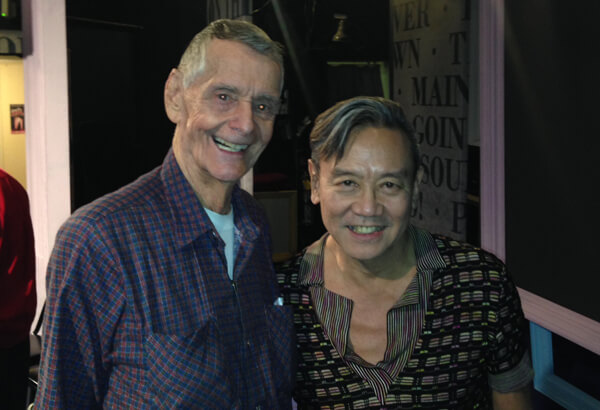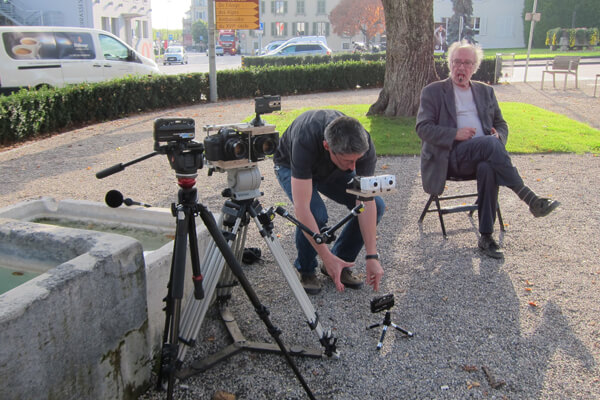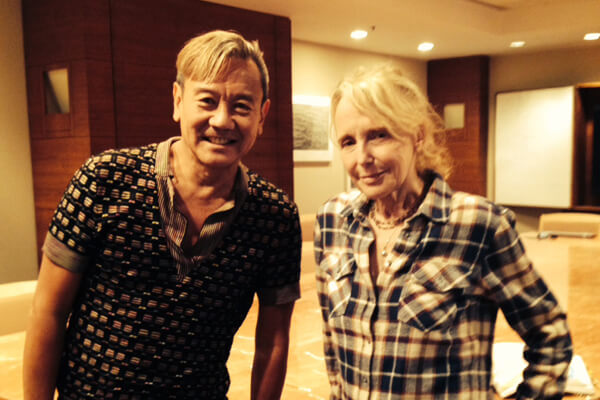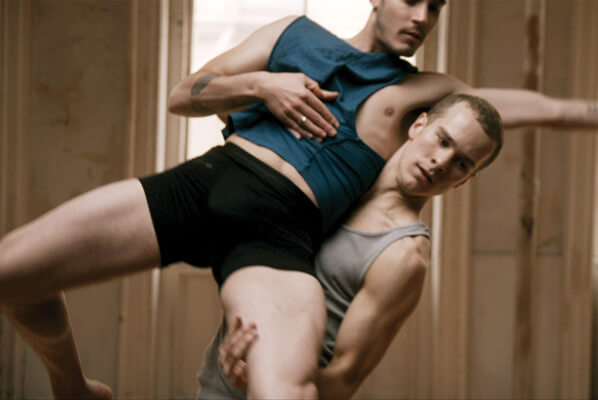The New York Film Festival has settled comfortably into late middle age as a collection of the greatest hits from the year’s earlier major festivals. One mark of our times is that it’s showing Todd Phillips’ “Joker,” a comic book adaptation that won the top prize at the Venice Film Festival while receiving a string of reviews suggesting it could inspire violence from incels and the Tyler Durden fan club. If it aspires to be the contemporary equivalent of Scorsese at his grimmest, the New York director himself kicks off the festival with “The Irishman” (which will open at the IFC Center November 1 but, as a Netflix release, is bound for limited theatrical exposure).
The festival closes with Edward Norton’s adaptation of Jonathan Lethem’s “Motherless Brooklyn,” with the remainder of two-plus weeks offering a survey of international cinema — the NYFF touts 29 films from 17 countries.
The leading LGBTQ-themed films in the Main Slate are Pedro Almodóvar’s “Pain and Glory,” starring Antonio Banderas as the director’s troubled alter ego, and Celine Sciamma’s “Portrait of a Lady on Fire, ” which depicts a lesbian painter and her female muse in 18th-century France. Albert Serra’s Marquis de Sade- and Andy Warhol-inspired orgy “Liberté,” perhaps the most sexually explicit film ever to play Cannes, might warrant being categorized as from an orientation all of its own. (It should be fun to watch the walkouts at its screenings!)
The documentary selection offers a selection of LGBTQ subjects: the Mount Sinai transgender surgery unit in Tania Cypriano’s “Born To Be” and profiles of Roy Cohn, Oliver Sacks, and Merce Cunningham. In the retrospective section, three rare shorts made between 1966 and 1986 by the Armenian director Sergei Parajanov, who was arrested by the Soviet government for being gay, play in new restorations.
If “elevated reality TV” were a sub-genre, “Born To Be” (Sep. 28, 3:15 p.m. at the Walter Reade Theater; Sep. 29, 3:45 p.m. at the Elinor Bunin Munroe Film Center) would fit in. It resembles a longer and classier version of the hospital-bound medical shows that fill up the cable dial. Cypriano uses Dr. Jess Ting as an entry point for a Transgender 101 lesson. Ting knew little about trans identity or the community when he volunteered to begin performing gender confirmation surgery 18 months before Cypriano started filming, but jumped right in where his colleagues got scared. “Born To Be” introduces us to a group of his patients, mostly shown in his office and discussing their medical procedures — though it does accompany some to their apartments and neighborhoods.
Even so, Cypriano’s approach is superficial. The film assumes that we need a cisgender man as a point of entry and identification. That would work better if Ting’s home life held much interest. The film attempts to fill in his personality — several scenes show him playing the bass and he mentions that he left music training at Julliard to follow his parents’ wishes and attend medical school instead — are tepid.
The film touches on aspects of transgender life it could have treated in more detail, such as generational and racial differences. When one of Ting’s apparently successful subjects goes from confidently speaking at schools to a suicide attempt, we’re left wondering whether we are really that much more liberated than when an older patient pursued sex work in the West Side highway’s trucks in the ‘70s.

With “Young Ahmed” (Sep. 30, 6 p.m. at Alice Tully Hall; Oct. 2, 8:30 p.m. at the Elinor Bunin Munroe Film Center) the Dardenne brothers have made their equivalent of “Three Billboards Outside Ebbing, Missouri,” and I don’t mean that as praise. They’ve chosen topical, highly charged subject matter to work with but have blundered blithely into stereotypes about Muslims, radicalization, and terrorism, played out with little nuance. The plot got dragged on social media back when it was a single line on IMDB: Belgian-Arab teen Ahmed (Idir Ben Addi) lives under the spell of a strict version of Islam, inspired by a local imam, that leads him to attempt to kill his teacher.
I don’t have any problem with the film’s visual style, which goes back and forth between hand-held close-ups and more sedate, static shots, but the script is simultaneously too ambiguous and on-the-nose. The film begins in media res, with Ahmed already radicalized, avoiding psychology in a way that might be admirable in another context. But here, it’s easy to fill in the gaps in a facile manner: for instance, “Young Ahmed” suggests that the boy’s problems lie with an absent father. Despite the emphasis on Islam, the plot is actually rather generic: the details could easily be swapped out with Ahmed joining a gang or turned into a white boy who becomes a neo-Nazi. There’s no real conflict or argument to the film, because it uses the mix of austerity and melodrama that has served the Dardenne brothers well in the past to reduce Ahmed to a symbol of thoughtless violence rather than a three-dimensional teenager.
Bertrand Bonello’s 2016 “Nocturama” is one of this decade’s masterpieces, so expectations were high for his follow-up “Zombi Child” (Oct. 1, 6 p.m. at Alice Tully Hall; Oct. 2, 9:15 p.m. at the Walter Reade). It puzzled, if not exactly disappointing, many critics when it premiered at Cannes in the spring. My initial response was positive but rather baffled. Thinking about it as I write now, it feels refreshing not to have been able to come up with an immediate judgment or interpretation.
Set in 1962 Haiti and present-day France, “Zombi Child” cuts back and forth between the stories of Clairvius Narcisse (Mackenson Bijou), a man drugged into zombiehood by his brother, and five teenage girls at a posh boarding school. (One of them turns out to be Clairvius’ granddaughter.) Bonello brings up all kinds of charged thematic material about colonialism, racism, gender, and the nature of freedom. But it’s hard to parse exactly what “Zombi Child” has to say about these subjects — it creates a very elaborate construct to play out a celebration of liberation in several forms and at different times, but that feels both simplistic and insufficient as a description.
Like many recent directors, Bonello is reaching out from the arthouse toward genre forms. “Zombi Child” draws on ideas and images from horror films, but it also has space to include a political science lecture by real-life scholar Patrick Boucheron lasting several minutes. Thankfully, its inquiry into desire and freedom plays out more like a fever dream, with this year’s best musical number!
57TH NEW YORK FILM FESTIVAL | Sep. 27-Oct. 13 | Film at Lincoln Center, various theaters | filmlinc.org/nyff2019




































